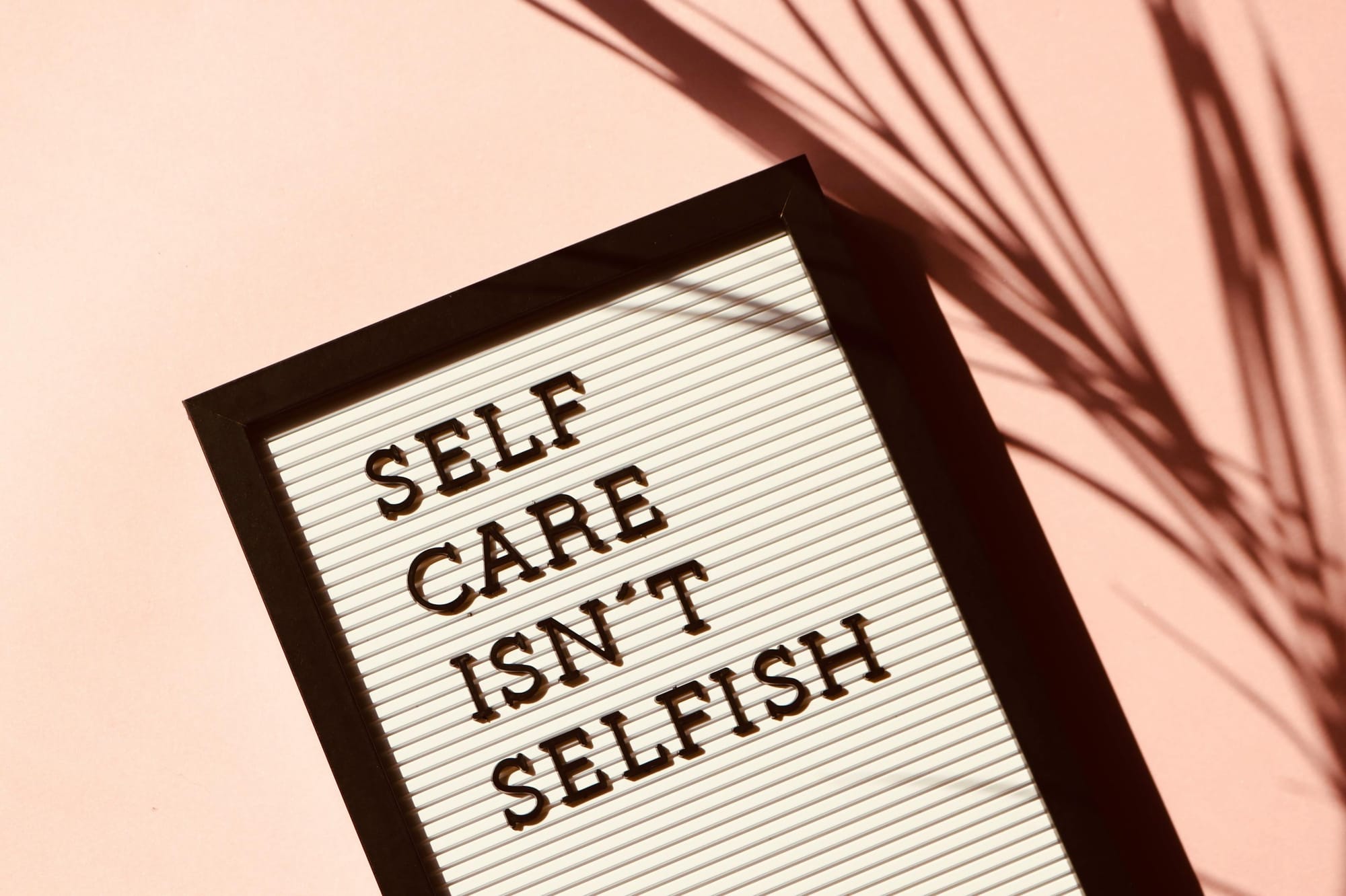"There is hope, even when your brain tells you there isn't." — John Green
Weeks and months after a wildfire, rebuilding homes is just part of the story. The deeper work? Tending to wounds no one can see.
In Traditional Chinese Medicine, emotional well-being is rooted in the steady flow of Qi—our life force—and the harmony of Shen, the spirit of the heart. When Qi and Shen are balanced, we feel whole. When disrupted, we falter—in body, mind, and spirit.
This ancient wisdom reminds us: healing isn’t linear. It’s a living process—fluid, cyclical, and unpredictable. Healing is like a river that overflows, recedes, returns, and carves a new path back to balance.
If you're carrying grief, fatigue, or that knot of what now, you’re not alone—and you’re not broken. Emotional healing deserves the same care we give physical injuries. And every messy, courageous step keeps your inner waters moving forward.
So, how do we begin to restore our inner balance?
Here are 10 simple, powerful ways to start caring for your mental health today:
1. Prioritize Ongoing Rest

Trauma scrambles stress signals. One minute, you’re wired and restless; the next, you feel totally numb. That’s your system trying to cope. After crisis hits, it’s easy to stay stuck in overdrive. Crossing off tasks. Pushing through on autopilot. But recovery requires pause - the kind of quiet that lets your body reset its inner alarms.
Experts are increasingly spotlighting the radical power of rest as medicine. Think of guilt-free daydreaming, deep breathing, and napping. Even a few minutes of stillness can help your body remember what calm feels like. Healing begins by learning to be still. Rest is the bridge back to balance.
Build a Rest Ritual That Works:
- Take mini reset breaks: Set alarms throughout the day to carve out 10-minute reset breaks—time to breathe, stretch, or step outside and break the cycle of stress.
Try this 6-Minute midday recharge
- Ease into sleep with the 3-2-1 method.
- 3 hours before bed: Skip big meals and alcohol.
- 2 hours before bed: Shut down work and brain-heavy tasks.
- 1 hour before bed: Dim the noise—screens off, lights low, and set a “wind-down” alarm to cue your body it’s time to chill.
- Let tech help you unplug. Set up your phone’s sleep mode (like Sleep Focus or Bedtime Mode) to silence notifications and soften screen glow.
2. Stay Connected to Safe People

When things get dark—reach out. In the loneliest moments, a small show of support can steady shaky ground. We’re wired for this. Time and again, research affirms what we already feel deep down –we heal faster and stronger together.
After Japan’s 2011 earthquake and tsunami, people with tight social circles were far less likely to sink into depression. Needing others is part of being human. So don’t wait. Reach out.
Steps to Strengthen Your Support Circle:
- Make a list of three people you feel safe turning to.
- Send a text or call one trusted person this week—just to check in or say hello.
- Invite someone for a coffee, walk, or meal—simple moments of togetherness matter.
3. Rebuild Small Daily Rituals
Even if your days look nothing like they did before, rebuilding simple routines—like regular mealtimes or sticking to a sleep schedule—can restore a sense of normalcy. These rhythms help pull us back from survival mode, mental health experts say. They offer a sense of control when everything else feels wild and unfamiliar.
Rebuild Your Routine:
- Plan to move, eat, and sleep at roughly the same times each day.
- Bring back one comforting habit, like a nightly journal check-in.
- Create a daily ritual—a familiar grounding moment like lighting a candle, stretching, or reading a poem.
4. Give Yourself Permission to Feel
“The wound is the place where the light enters you.” – Rumi
Feeling deeply—no matter how uncomfortable—isn’t a detour from recovery; it is recovery, experts say. Your brain and body need space to absorb, react, and adapt to this new reality. Rushing that process usually backfires.
So, instead of trying to "get over it," give yourself room to carry grief and hope simultaneously.
Make Space for Every Emotion:
- Start a “feelings journal”—no filters, no overthinking, just get it out.
- Let emotions rise and pass without rushing to solve or suppress them.
- Reframe your inner voice: swap “What’s wrong with me?” for “It makes sense that I feel this way.” Instead of: “Why can’t I handle this?” Try: “I’m doing the best I can with what I have.”
Check out 4-step process to overcome your inner critic
5. Ground Yourself During Overwhelm
In the thick of panic—when your mind’s racing and traumatic memories come flooding back—it’s easy to feel like you’re drowning. Grounding techniques can help pull you out of the spiral and plant you in the now. It’s a way of telling your nervous system that you’re safe.
Practices to help you reset:
- The 5-4-3-2-1 Method: Look around. Name 5 things you see, 4 you can touch, 3 you hear, 2 you can smell, and 1 you can taste.
- Root Visualization: Stand or sit and plant your feet on solid ground. Close your eyes. Picture roots growing down from your feet, deep and unshakable into the ground, anchoring you to the earth.
- Simple Guided Meditations: There are many benefits to meditation including reducing stress, panic, and anxiety. Begin with some short, simple guided meditations to help you ground yourself.
6. Limit Daily Media Exposure
You might think you’re in control of the scroll, but it quietly takes a toll. Your brain isn’t built for a 24/7 news cycle. Yes, staying informed is important—but overwhelming your senses with negative headlines can do more harm than good.
Repeated exposure to traumatic images can spike anxiety and leave your nervous system buzzing long after you’ve put your phone down, psychologists say.
Set Doomscrolling Boundaries:
- Set a 15-minute daily limit for news updates. Turn off alerts whenever possible.
- Balance every news check-in with 30 minutes of something soothing—read a novel, doodle, step outside for a walk.
7. Channel Heavy Emotions into Action
"It’s okay not to be okay." — Maya Angelou
Guilt. Anger. Both are common after a disaster. But those feelings don’t have to weigh you down. Put them to work. Being there for others who understand what you’ve been through can be therapeutic. A small act of service can turn emotional heaviness into an act of healing for both others and yourself.
Ideas to Get Started:
- Volunteer for a community project, even for an hour.
- Join a LA wildfire survivor support group. The Grief Circle offers weekly virtual drop-ins, and the LA Fire Support Group creates space for women of color to heal together.
- Write a short letter of encouragement to another survivor or frontline worker.
8. Reclaim Joy
When happiness sneaks in, it can feel jarring, even wrong. But those flickers of joy are essential. Allowing yourself moments of bliss, even while grieving or rebuilding, strengthens resilience, according to experts. Small pleasures don’t erase pain, but they can recharge your spirit and plant seeds of hope.
Find Moments That Lift You:
- Build your personal joy soundtrack. Curate a playlist of songs that brighten your mood—even if they just nudge you a little closer to okay.
- Capture small sparks. Start a "Tiny Joys" album on your phone and snap one photo a day of something that makes you smile or feel grateful, no matter how small.
9. Find Healing in Nature

A few minutes outdoors can work magic. Sun on your skin. Trees swaying overhead. Birdsong gliding through the air. Even a brief time in nature eases stress, lifts your mood, and helps restore balance.
Ways to Recharge with Nature:
- Catch 15 Minutes of Sun: Step outside daily—even if it’s just for fresh air.
- Stroll Local Green Spaces: A quick lap around your neighborhood park can do wonders.
- Tune In, Mindfully: Next time you’re out, pause and notice nature’s details. Feel the wind, watch it make leaves dance. Take in the colors.
- Grow Something Green: Start a windowsill herb garden or care for a single plant.
10. Seek Support for Lingering Trauma Responses

If your mind and body still feel stuck—trouble sleeping, loss of appetite, pulling away from people—it may be a sign to get help. Lingering trauma can show up as nightmares, flashbacks, brain fog, body aches, or bursts of anger. These symptoms are your body’s way of asking for care. Just like a broken bone heals best with early treatment, preemptive mental health support can help prevent deeper struggles down the line. A therapist can help you unpack your feelings and plan your next steps.
Access Support:
- Covered California Insurance: Per state and federal law, all Covered CA plans must include therapy and other mental health services. Check your plan details online, contact your insurer, or get help through Covered California’s certified counselors.
- Integrative Psychotherapy Group: Offering free short-term therapy and referrals for long-term or specialized care to wildfire survivors. Based in Beverly Hills. Contact at (310) 461-4393, info@ipgtherapy.com, or visit their website.
- Maple Counseling: Offering six free therapy sessions for those affected by the Palisades and Eaton fires, plus six months of free therapy for first responders and their families. Contact at (310) 271-9999, info@tmcc.org, or visit their website.
- Headspace App: Free access to mindfulness and meditation resources for Los Angeles County residents through July 31, 2025.
- PTSD Coach App: Designed by the U.S. Department of Veteran Affairs for anyone navigating PTSD symptoms. Helpful for self-guided support, though not a replacement for therapy.
- 988 Suicide & Crisis Lifeline: Call or text 988 anytime for 24/7 confidential support during a mental health or emotional crisis. Live chat is also available.
"Healing takes time, and asking for help is a courageous step." — Mariska Hargitay
Recovery can feel slow, but every small victory matters. Every act of care, every new connection strengthens the foundation for lasting healing. At Lotus Rising LA, we’re committed to walking this path with you, no matter how long it takes.
Join the Lotus Pad! It’s a Facebook gathering ground where survivors, neighbors, and supporters are fostering hope and community.
You’re not in this alone. Let’s keep moving forward—together.
Disclaimer: The content shared in our blog is for informational purposes only and should not be considered legal, medical, or financial advice. Please consult with a qualified professional for guidance specific to your situation.

